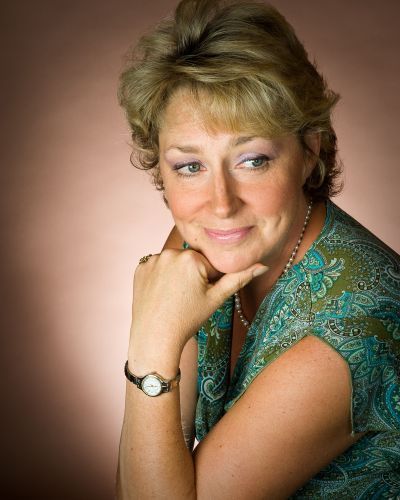Seattle’s Matassa joins Spokane Jazz Orchestra for finale

When jazz fans debate the question, “Who’s the Northwest’s best jazz singer?” the name Greta Matassa always emerges near the top of the list.
Earshot, the Seattle jazz magazine, has named Matassa the Northwest’s Jazz Vocalist of the Year six times. The Seattle Post-Intelligencer once called her musicianship “meticulous,” and the Seattle Times has compared her to both Billie Holiday and Judy Garland.
Her voice – nimble, whiskey-tinged and pure – is a regular draw at Seattle-area jazz clubs such as Tula’s and Bake’s Place.
Local listeners will learn exactly why she’s in such demand throughout the Northwest when she guest-stars in Saturday’s Spokane Jazz Orchestra season finale at the Bing Crosby Theater.
The concert’s theme is “Memories in Song,” and Matassa will perform standards from the American songbook. She has an exceptionally wide repertoire, drawing on songs ranging from Duke Ellington to Ray Charles to Cole Porter.
She’ll be backed by the 17-piece Spokane Jazz Orchestra, under the direction of Tom Molter. The show will also include a special treat: Clipper Anderson, Matassa’s husband and a well-known Seattle bassist, will join his wife and the SJO for the second half of the show.
Anderson is particularly beloved in Spokane, where he lived and worked for years. He was a key member of Jazz Conspiracy, one of the most popular jazz bands in local history.
Matassa is the daughter of two jazz fans. During her childhood on Bainbridge Island, jazz was constantly on the record player. She grew up with Ella Fitzgerald, Billie Holiday, Anita O’Day, Fred Astaire and Frank Sinatra.
She began her singing career early, dropping out of high school and singing in the lounge of a Salem, Ore., country club.
Matassa fronted some heavy metal bands, but “blew my voice out,” she writes in her official bio. She returned to jazz, her original love, and started collaborating with some of Seattle’s top jazz musicians. She was the vocalist with the Jazz Police in the 1980s.
Many Seattle jazz fans first heard about her in 1989 when she sang a program of Kurt Weill music for a Pacific Northwest Ballet dance show. It turned into a big success and was revived several times over the next decade.
Today, she maintains a schedule that would be the envy of most working jazz musicians. She’ll sandwich her SJO appearance in between her regular gigs at Tula’s and other venues ranging from the Muckleshoot Casino in Auburn, Wash., to the North City Wine Bistro in Shoreline, Wash.
In fact, few Northwest jazz musicians can make the claim she makes on her website: “I’ve never had a day job.”